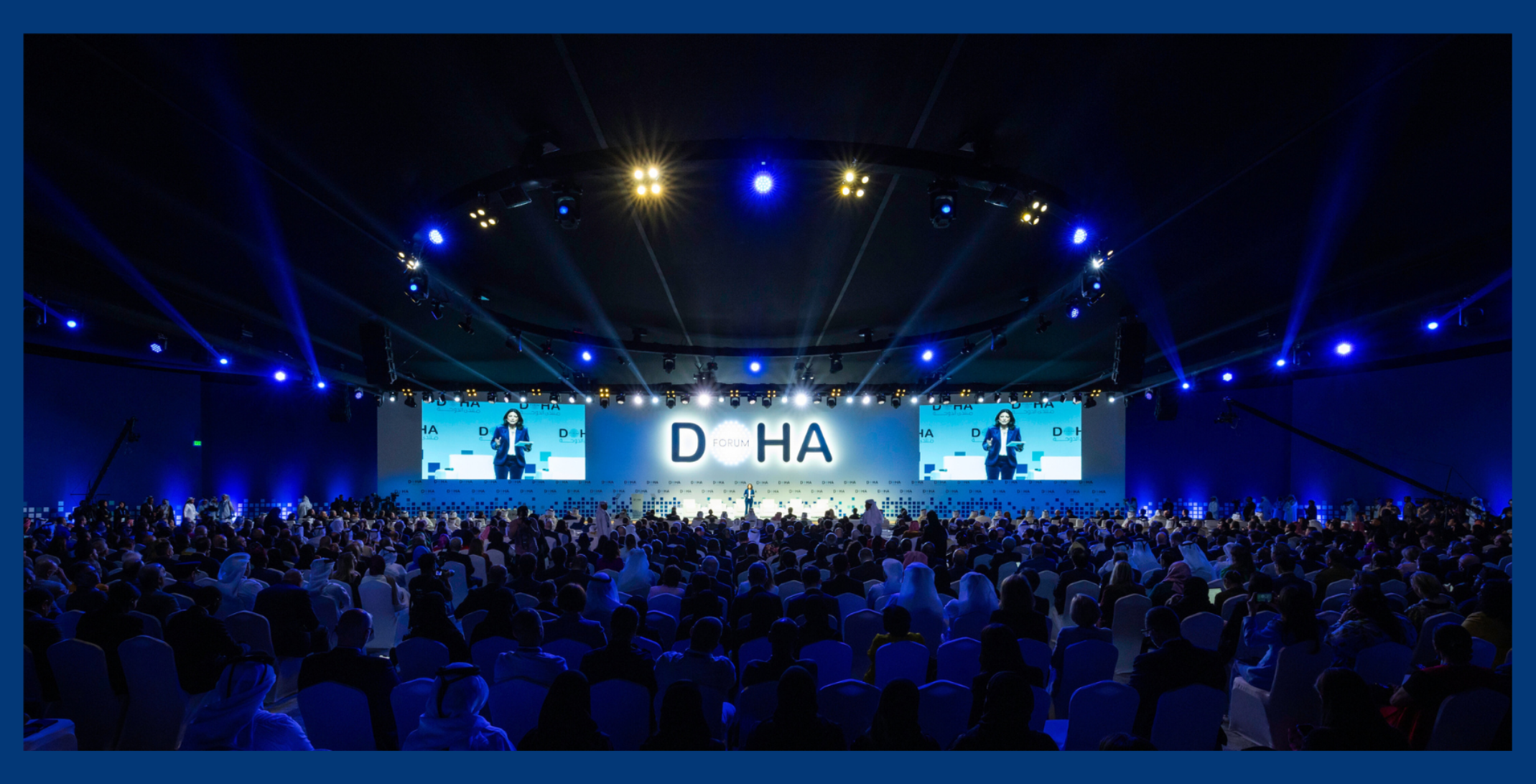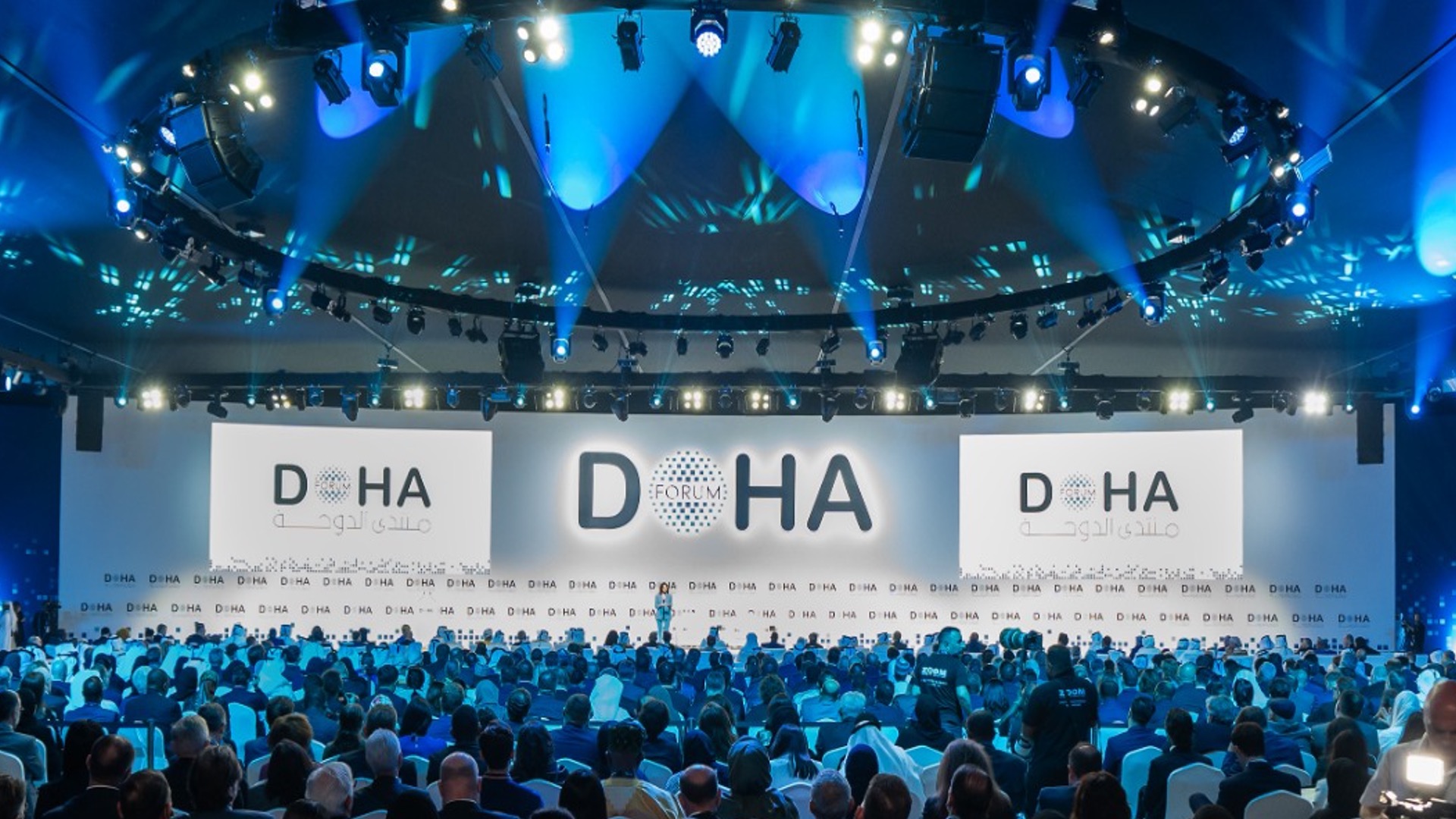
Doha Forum 2025 To Convene Global Leaders Under The Theme “Justice In Action: Beyond Promises To Progress”
11 November 2025 09:00 AM
Doha, Qatar – 11 November 2025: The 23rd edition of Doha Forum will take place on 6–7 December 2025, bringing together world leaders, policymakers, and experts from across the globe to engage on the defining challenges of our time - from peace and security to economic resilience and technological transformation.
Held under the patronage of His Highness Sheikh Tamim bin Hamad Al Thani, Amir of the State of Qatar, Doha Forum 2025 reaffirms Qatar’s steadfast commitment to diplomacy and multilateral cooperation. Guided by this year’s theme, “Justice in Action: Beyond Promises to Progress,” the Forum will convene diverse voices to exchange perspectives and explore pathways toward a more just, balanced and sustainable world.
H.E. Mubarak Ajlan Al-Kuwari, Executive Director of Doha Forum, said: “At a time of profound global change, Doha Forum continues to serve as a neutral and inclusive platform for dialogue and diplomacy. By bringing together diverse perspectives, we aim to strengthen mutual understanding and foster solutions that advance the common good.”
Maha Al-Kuwari, General Manager of Doha Forum, added: “Doha Forum 2025 places justice at the heart of global dialogue - not as an ideal to debate, but as a shared responsibility to uphold. Our goal is to ensure that the conversations taking place here translate into the cooperation and tangible results the world urgently needs.”
Developed in collaboration with leading think tanks and international institutions, the 2025 program will explore the critical issues shaping today’s global agenda - from conflict prevention and economic reform to energy security, AI governance, and media integrity.
Key Sessions & Global Partnerships Include:
- U.S. Strategy in the Middle East: Sorting Through Grand Statements and Policy - with the Atlantic Council, examining how U.S. actions in the Middle East align with or diverge from stated ambitions amid shifting priorities, internal policy divisions, and competing doctrines, and what this means for allies and partners across the region.
- New Syria One Year On: Assessing Progress, Opportunity & Challenges – with the Middle East Institute, examining Syria’s transition one year after the fall of Bashar al-Assad’s regime, and assessing the country’s progress toward stability and recovery amid ongoing challenges related to security, reconstruction, sanctions, and sovereignty.
- Shockwaves and Safety Nets: Rethinking Trade in the Age of Disruption – with the World Economic Forum (WEF), exploring how global trade can evolve amid economic volatility and technological disruption to foster cooperation and ensure fairness for those most affected by shifting markets.
- Arms Control: The Nuclear Challenge of our Era - with the Stockholm International Peace Research Institute (SIPRI), exploring how to revive momentum for nuclear arms control amid a new era of competition spanning cyberspace, outer space, and emerging technologies.
- Navigating Disruptions to Global Health Financing: Strategic Partnerships to Reclaim Country Ownership – with the Gates Foundation and the Middle East Council on Global Affairs, exploring how South-South and Gulf-engaged collaborations can strengthen primary health care and advance resilient, country-led health systems amid declining aid flows.
- Competing for the Future: AI's Role in Economic Transformation and Global Power - with the Observer Research Foundation (ORF), examining how AI is redefining global power and whether its rapid adoption can drive equitable economic diversification and growth.
- U.S.–China Relations: Navigating the Risks and Opportunities of a Changing Global Order – with the Center for China and Globalization (CCG), examining how intensifying U.S.–China competition is reshaping trade, diplomacy, and global power, and how nations are adapting to a more multipolar world.
- How Shifts in Global Aid are Reshaping Fragile States – with the Center for Strategic and International Studies (CSIS), exploring how declining aid from traditional donors is transforming governance and stability in fragile states, and whether new actors and models can deliver more sustainable support.
Doha Forum 2025 will bring together a distinguished roster of participants - from heads of state and government to foreign ministers, institutional leaders, and renowned experts shaping global policy. Click here to stay up to date with the latest speaker confirmations.
This year’s edition is expected to welcome over 5,000 participants from more than 160 countries. As one of the world’s foremost platforms for international dialogue, the Forum continues to serve as a space where diplomacy meets action – fostering collaboration and accountability to advance shared global progress.
